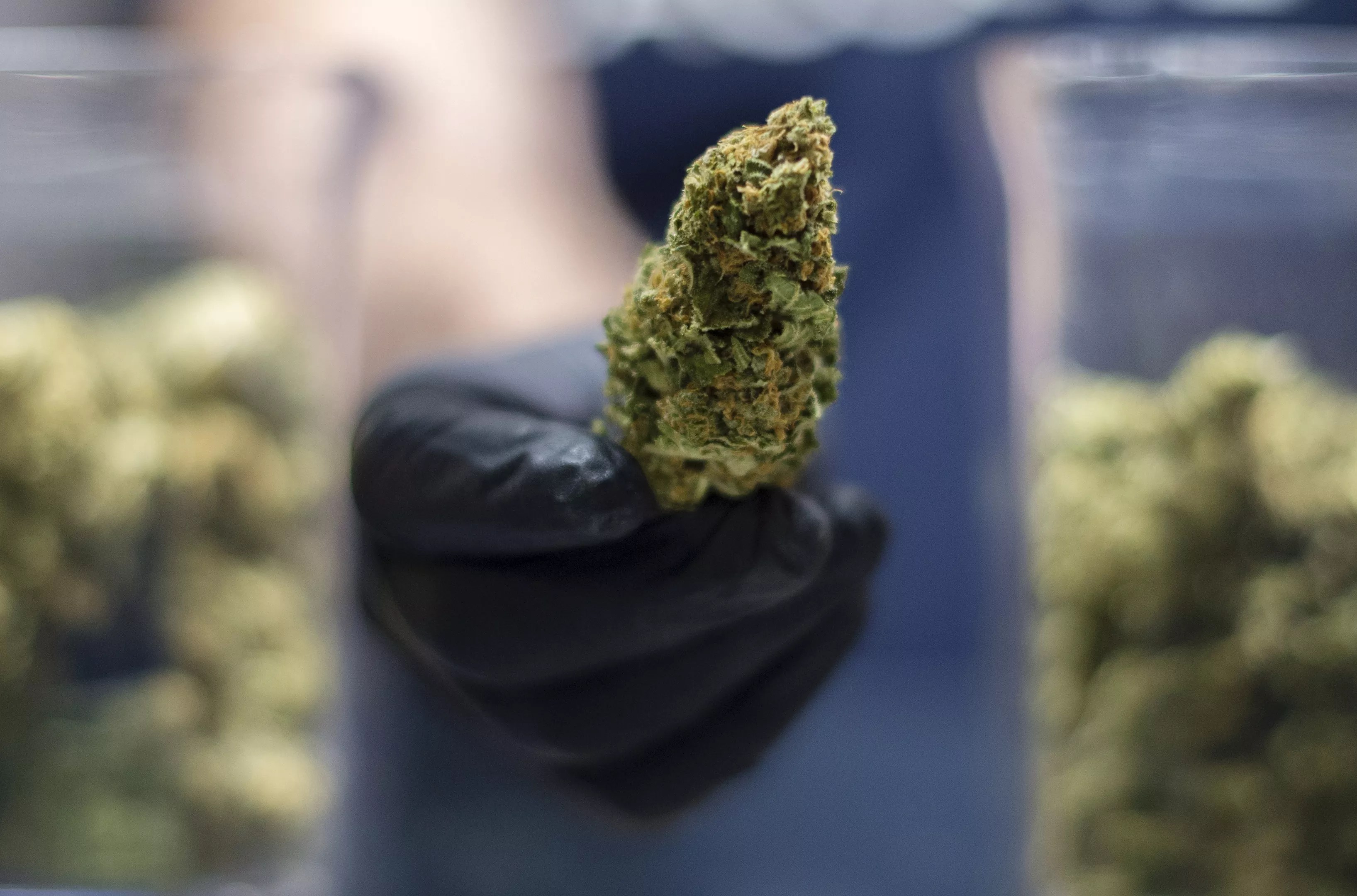
Alberto Ortega/Getty

Audio By Carbonatix
If Oklahoma House Bill 2022 passes in the state Senate, medicinal cannabis will be just as accessible to Texans as legal gambling is.
The bill would open up the state’s medical weed program to residents from all 50 states. Under the current program, only people with medical licenses from other states qualify for the program. Additionally, the bill extends the length of time a medical weed license is valid from 30 days to two years for nonresidents.
Oklahoma Rep. Scott Fetgatter, who filed the bill, told The Oklahoman, “There are patients out there that need longer opportunities, whether they have cancer or some other medical issue, so I felt it was necessary to just extend that out so they’re not having to constantly renew that license.”
To qualify, nonresidents would need to get approved by an Oklahoma doctor and pay a $200 fee for a license that would then have to be approved by the Oklahoma Medical Marijuana Authority.
Daryoush Austin Zamhariri, creator and chief editor of the Texas Cannabis Collective, a Fort Worth-based cannabis news site, said this could make medicinal weed available to millions more people.
“What you’re gonna see is very similar to the casino issue,” Zamhariri said. “It’s almost coming to the point where, as a medical marijuana patient the idea is: OK, well, if you live anywhere on the border of Texas, access is not going to be the issue. It’s about enforcement. And if we can just end the arrests for marijuana possession, then we don’t really have to worry about a medical marijuana program in Texas.”
As far as Texan marijuana fans are concerned, it would be a good thing: Oklahoma is close (especially to us North Texans), and the state’s medical weed program is far ahead of Texas’.
In 2015, Gov. Greg Abbot signed the Texas Compassionate Use Act allowing some qualifying patients to access to cannabis with 10% or more cannabidiol (CBD) but no more than 0.5% tetrahydrocannabinol (“THC”), too little THC to get anyone high. It also allows regulated businesses to cultivate, process and distribute “low-THC cannabis” to certain patients.
It was later expanded to include more qualifying conditions, but Zamhariri said it’s still one of the most restrictive in the country for both the industry and the patients. Texas has only three licensed dispensaries overseen by the Department of Public Safety.
“And if we can just end the arrests for marijuana possession, then we don’t really have to worry about a medical marijuana program in Texas.” – Daryoush Austin Zamhariri, Texas Cannabis Collective
Zamhariri said dispensaries are already plentiful in Oklahoma. The state has more dispensaries than any other. According to KFOR, the Oklahoma City NBC affiliate, the state has over 10,000 active licenses for dispensaries, growers and processors
The Texas-authorized cannabis is only in oil form, and to get it, patients must be enrolled in the Texas Compassionate Use registry and treatment has to be prescribed by a doctor who is also in the registry. Zamhariri said it’s a very long process.
Marijuana bills have had more success in the Texas House of Representatives in recent years. Some promising Texas bills have been filed, including one that further extends the Compassionate Use Act.
However, Zamhariri isn’t confident there will be any significant changes coming from the Legislature this session. A big obstacle this go-around will be the focus on COVID-19 and the power grid. The attention to these issues may divide focus and support for significant weed reform.
Oklahoma’s medical weed program, on the other hand, is a lot more progressive. With a medical weed license, you can possess just over 84 grams, six mature plants, six seedling plants, just over 28 grams of concentrate and about 2,037 grams of edibles. Additionally, at your residence, you can possess about 226 grams of weed.
This is huge, considering the comparably measly less than 2 ounces Dallas and the local police departments have been debating about. (An ounce is 28.35 grams.)
Possession of up to 42.45 grams by someone who can state a medical condition but doesn’t have a medical is a misdemeanor charge in Oklahoma, punishable by a fine no more than $400.
Approximately 365,464 Oklahoma residents are medical marijuana patients. This pales in comparison to Texas, which has about 25 million more people. According to The Texas Tribune, only 3,519 Texans are registered with the state to use medical marijuana. Advocates say far more are eligible under the current law.
The National Organization for the Reform of Marijuana Laws doesn’t even recognize Texas as a medical marijuana state because there are so many limitations. Additionally, medical cannabis products in Texas are capped at 0.5% THC, only 0.2% more than hemp products sold all throughout the state. Because of this, NORML considers Texas a “medical CBD” state.